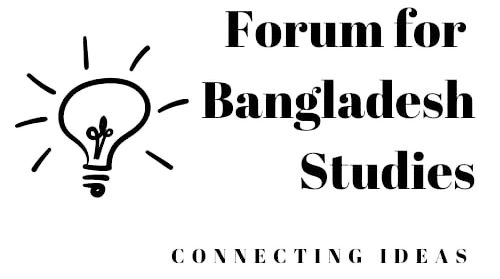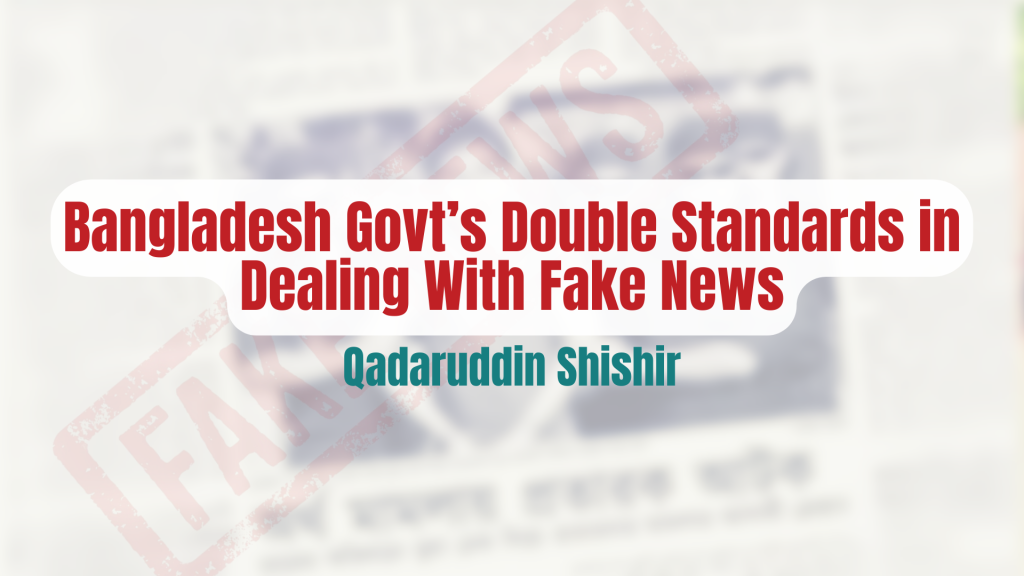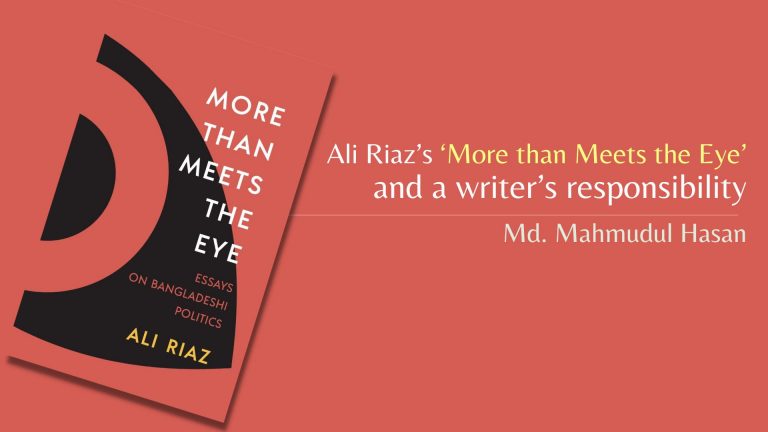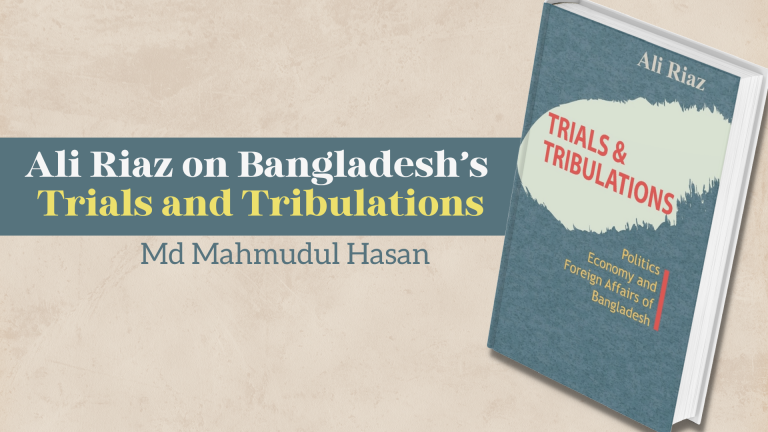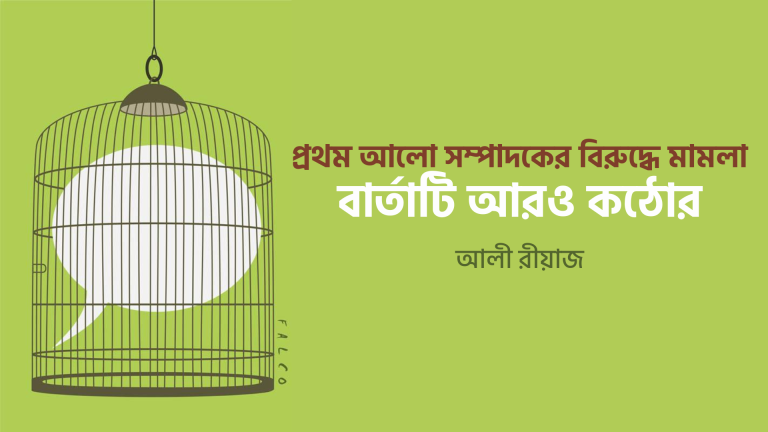As Bangladesh approaches a national election within a year, the authorities have shut down 191 news websites claiming they were carrying out ‘anti-state propaganda’. This was confirmed by Information Minister Hassan Mahmud in a statement he made in Parliament on January 31.
Also in January, Foreign Minister A.K. Abdul Momen directed Bangladesh envoys abroad to respond ‘spontaneously’ against ‘all sorts of anti-Bangladesh propaganda’ in their respective host countries without waiting for Dhaka’s permission.
The government also formed a coordination committee led by the foreign ministry to deal with “anti-state propaganda” at home and abroad to debunk “misinformation” with “correct information”.
These measures may indicate that the government is determined to counter fake news and anti-state propaganda, but the ground reality points to a different story, say independent media activists.
On the one hand, the government has been clamping down on selected news websites on charges that they spread anti-state propaganda; on the other hand, it turns a blind eye to hosts of other websites and Facebook pages that peddle what media activists call ‘favorable’ fake news.
Before the 2018 national elections, too, the Bangladesh government blocked at least 58 news websites, many of them known for their dissenting coverage, but days later Facebook and Twitter accused the Bangladesh authorities of being part of a network that had posted anti-opposition content.
In the past few years, before and after the 2018 elections, fact-checkers have routinely debunked pro-government disinformation promoted by a string of websites and social media pages.
Little or no action has been taken against these pro-government sites, some of which frequently carried fabricated content to vilify investigative journalists, among others, for their works critical of the government.
“The government targets its critics in the name of fighting fake news and at the same time it promotes disinformation that favors its agenda”, said Dr Maruf Mallick, a media expert and lecturer at the DW Akademie.
Coordinated campaign against independent journalists
Zulkarnain Saer Khan is a whistleblower turned investigative journalist and a Bangladeshi citizen now living in a European country. On May 22, last year, a Bangladeshi Facebook page posted a six-minute video titled in Bengali, “Zulkarnain Saer: The Addicted Criminal”.
The video, presented as a short documentary, listed a range of crimes Khan is alleged to have committed and they included illicit affairs with several women. The voice-over in the video also claimed that Khan was arrested many times by law enforcement authorities.
But the problem is, four of the five photographs – featuring Khan with five different women – used in the video to accuse the journalist of ‘having sexual relationships’ with several women are fake! The fifth photo shows Khan with his wife and it had been posted by him on his Facebook profile a few months ago.
Reverse image searches on Google and Yandex, two major search engines, confirm that pictures of Bangladeshi actors with actresses had been photoshopped to produce the four fake pictures. The male actors’ faces had been removed and replaced with that of Khan’s. The actresses’ faces had been blurred beyond recognition to depict them as the whistleblower’s alleged female partners.

Moreover, the Facebook video also used a fabricated newspaper cutting to claim that Khan had been arrested by law enforcement agencies several times. Reverse image searches showed that the fake picture on the newspaper cutting had been concocted using a picture a newspaper carried in 2016 after the arrest of a Bangladeshi businessman by an elite police unit.

Khan has been hunted by a network of social media pages, accounts and websites run by anonymous people since he appeared in a blockbuster investigative documentary aired by the Qatar-based Al Jazeera channel in February 2021. It revealed some whistleblowing details of how some influential figures in the Bangladesh government headed by Prime Minister Sheikh Haseena were involved in corruption and serious irregularities.
In the Al Jazeera documentary, Khan, then a Hungary-based entrepreneur, was the star witness and undercover source of the investigation. As he hailed from a military family in Dhaka, he had access to the top circles of the Bangladesh government.
Khan has since joined Al Jazeera’s Investigative Unit (AJIU) as a researcher and relocated himself to an undisclosed location. He has contributed a series of reports critical of Bangladesh’s current Awami League government.
Immediately after the release of the documentary, which won the award for the Best Investigative Report at the prestigious Amnesty International UK Media Awards 2022, the Bangladeshi government rubbished it as “a false, defamatory and politically motivated smear campaign”.
Soon, pro-government media outlets ran stories (see here, here, here) to malign Khan. Also joining the attack were a host of pro-government Facebook pages and websites, apart from ruling Awami League leaders.
The smear campaign against Khan portrayed him as a criminal, anti-national, and anti-religious element trying to harm the nation’s interest and hatching conspiracies together with ‘anti-liberation forces’, a term often used by Awami League leaders to malign opposition parties. The smear campaign was made up of disinformation and manipulated visuals.
A search for Zulkarnain Saer Khan on the social media monitoring tool CrowdTangle produced more than 3000 posts published since February 2021 on Facebook alone and most of them slander the journalist.
Some of these malicious reports appeared also on little-known websites that carry pro-government and anti-opposition content.
Since February 2021, Khan has also been working for other news organizations such as OCCRP and Haaretz to expose explosive details of government corruption and malpractices. Predictably, his name became a common object of attack on pro-government websites and Facebook pages.
A trend of harassing journos
Khan is not the only journalist who has come under a coordinated smear campaign in recent years.
Tasneem Khalil, editor-in-chief of Netra News, a Sweden-based investigative media outlet focusing on Bangladesh, is a typical target of pro-government websites and Facebook pages. He is depicted as a conspirator, a foreign spy and a propagandist against Bangladesh.
Whenever Netra News publishes an investigative piece exposing the corrupt deals of influential leaders in the government or rights violations by security forces, a new round of disinformation drive is launched against Khalil by these websites and Facebook pages.
Khalil came under their radar right after the airing of the Al Jazeera documentary, in which he had been interviewed as an expert.
He was dubbed a ‘foreign spy’ in a video clip produced by a Facebook page named ‘Dhaka Television’. It was widely shared on social media by ruling party leaders including Tonmoy Ahmed, coordinator of the Awami League’s propaganda organ, the Centre for Research and Information (CRI).
The Netra News team, particularly Khalil and editor David Berman, again became targets (see here, here and here) of a pro-government disinformation network after it published a report headlined “Power corruption: All the state minister’s men” on August 13, 2021.
Another exiled journalist who became a victim of a witch-hunt by pro-government social media sites (see here here and here) is Musfiqul Fazal Ansary, editor of an independent media outlet named JustNewsBD.
Based in the United States, Ansary attends White House media briefings and asks questions related to the Bangladesh government’s rights abuses.
The attacks on independent journalists have added to Bangladesh’s already depressing human rights record. At least 15 journalists have been killed in Bangladesh over the past decade, according to the United Nations.
In February last year, a UN statement said: “The UN experts have received numerous reports of journalists, activists, and members of civil society groups being arbitrarily detained, attacked, abducted, threatened, and subjected to judicial harassment.”
Increasing intimidation of the media and journalists has made Bangladesh slip 10 notches in last year’s World Press Freedom Index compiled by Reporters Without Borders.
A pro-government network of campaign
Working as a fact checker for different international organizations for the last six years, this reporter has created a database of websites and Facebook pages that have been frequently flagged for producing disinformation be it political, religious, economic or else.
In the process, more than 150 Facebook pages and more than 20 websites that produce, distribute and proliferate pro-government disinformation in a coordinated manner and on a regular basis were found.
Some of the websites and pages post only materials that either promote the government or attack the opposition. On specific occasions, their focus turns on journalists, writers and human rights defenders.
To understand how independent journalists have been targeted by this pro-government online network in the last two years (2021 and 2022) the activities of these 150 Facebook pages and 20 websites were investigated.
For several weeks during November and December 2022, a Facebook group (name withheld) with around one million members was closely monitored. Used for the dissemination of pro-government propaganda and disinformation, the group has among its admins a verified Facebook page of an important government office and the coordinator of CRI, the propaganda wing of the ruling Awami League.
A few of those 150 Facebook pages and websites monitored for this investigation are also admins and moderators of this Facebook group.
The instances of disinformation campaigns against some independent journalists mentioned earlier in this report were all found in this network of websites and Facebook pages.
As the next national election comes closer (due in early 2024), this network is already showing indications of becoming active with a pro-govt narrative filled with disinformation. One of the most discussed fake news items spread before the 2018 election has resurfaced in recent weeks in some pages of the network and AFP has debunked it again.
Fact-checkers and the independent media have exposed several fake-news items that propped up the government ahead of the 2018 elections.
Asked about the shutting down of the 191 websites and the government’s failure to take measures against those websites that spread fake news, Dr. Vanesa Rodrigues, deputy secretary of the Ministry of Information and Broadcasting, said, “We do not monitor who spreads what on their websites. If we get any complaint from anyone only then we respond.”
“We might not be able to take steps against some websites because we did not receive any objection against them.”
This story is produced under the ANFREL Asian Media Fellowship on Election Reporting.
